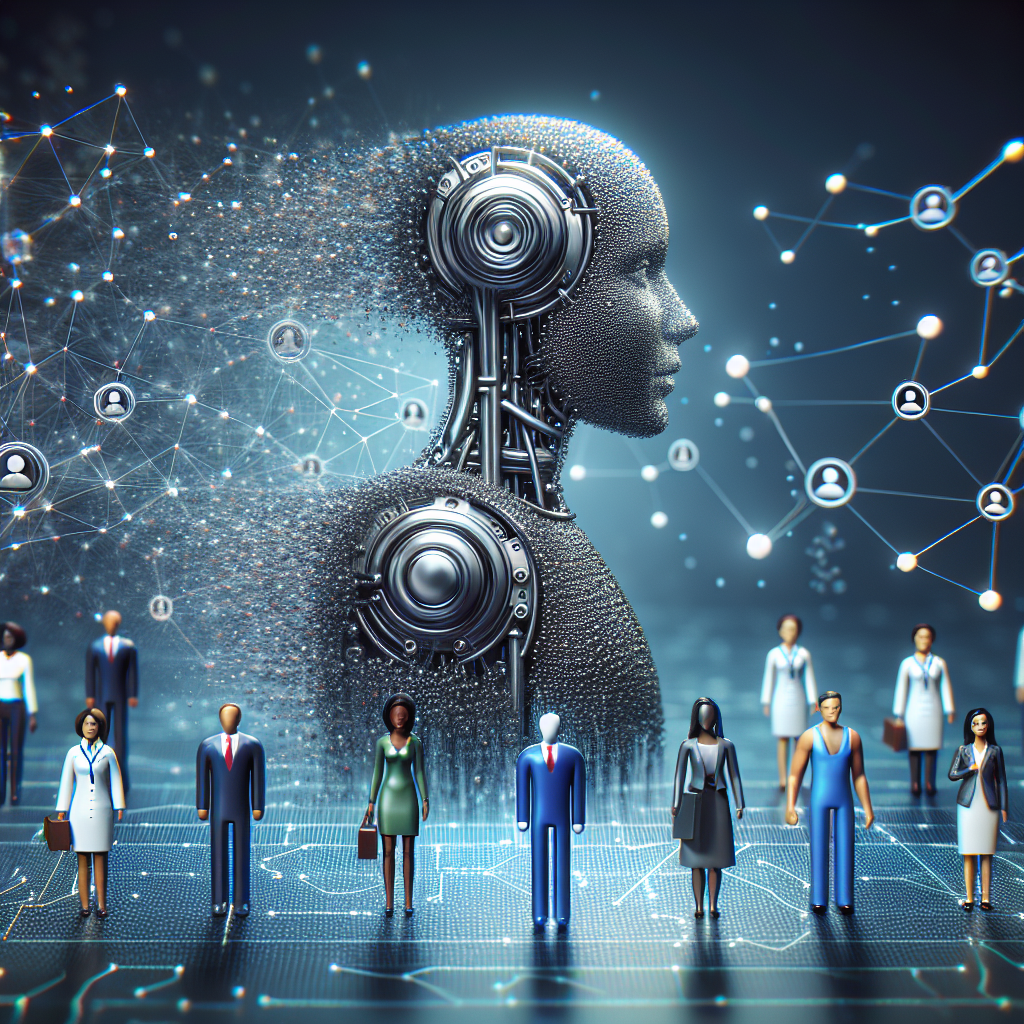The Impact of AI Tools on Recruitment and Talent Acquisition
In recent years, the recruitment and talent acquisition process has been revolutionized by the introduction of artificial intelligence (AI) tools. These tools have the potential to significantly streamline the hiring process, improve candidate experience, and help organizations make more informed hiring decisions. In this article, we will explore the impact of AI tools on recruitment and talent acquisition and how they are changing the way organizations find and hire top talent.
Benefits of AI Tools in Recruitment and Talent Acquisition
1. Improved Efficiency: One of the key benefits of AI tools in recruitment is their ability to automate time-consuming tasks such as resume screening, scheduling interviews, and communicating with candidates. This allows recruiters to focus on more strategic tasks and reduce the time it takes to fill a position.
2. Enhanced Candidate Experience: AI tools can provide candidates with a more personalized and interactive experience throughout the recruitment process. Chatbots, for example, can answer candidate questions, provide updates on their application status, and even conduct preliminary interviews. This can help candidates feel more engaged and valued throughout the hiring process.
3. Better Candidate Matching: AI tools can analyze large volumes of data to identify patterns and trends in candidate profiles, allowing recruiters to make more informed hiring decisions. These tools can also help match candidates to job requirements based on skills, experience, and cultural fit, leading to better quality hires.
4. Diversity and Inclusion: AI tools can help organizations reduce bias in the recruitment process by focusing on objective factors such as skills and experience. These tools can also help identify and attract diverse candidates, leading to a more inclusive workforce.
5. Cost Savings: By automating repetitive tasks, reducing time-to-fill, and improving candidate quality, AI tools can help organizations save time and money in the recruitment process. This can lead to higher efficiency and a more competitive edge in attracting top talent.
Challenges of AI Tools in Recruitment and Talent Acquisition
While AI tools offer many benefits in recruitment and talent acquisition, there are also some challenges that organizations need to be aware of:
1. Data Privacy and Security: AI tools rely on large amounts of data to make informed decisions. Organizations need to ensure that they are complying with data privacy regulations and protecting candidate information from potential security breaches.
2. Bias and Fairness: AI tools are only as good as the data they are trained on. If the data used to train these tools is biased, it can perpetuate existing biases in the recruitment process. Organizations need to be vigilant in monitoring and addressing bias in AI tools to ensure fair and equitable hiring practices.
3. Lack of Human Touch: While AI tools can streamline the recruitment process, they can also lead to a lack of human interaction. Candidates may feel disconnected or undervalued if they only interact with AI tools throughout the hiring process. Organizations need to strike a balance between automation and human touch to provide a positive candidate experience.
4. Skills Gap: Implementing AI tools in recruitment requires a certain level of technical expertise and training. Organizations may need to invest in upskilling their HR teams to effectively leverage AI tools and maximize their benefits.
FAQs
Q: How do AI tools screen resumes and candidates?
A: AI tools use algorithms and machine learning to analyze resumes and candidate profiles based on predefined criteria such as skills, experience, and qualifications. These tools can quickly identify top candidates that match the job requirements, saving recruiters time and effort in the screening process.
Q: How do AI tools improve candidate experience?
A: AI tools can improve candidate experience by providing personalized interactions, timely updates, and quick responses to candidate queries. Chatbots, for example, can engage with candidates in real-time, answer their questions, and provide feedback on their application status, leading to a more positive and engaging recruitment experience.
Q: How do AI tools help in reducing bias in the recruitment process?
A: AI tools can help reduce bias in the recruitment process by focusing on objective factors such as skills and experience. These tools can also help identify and attract diverse candidates by analyzing data and trends in candidate profiles. By removing subjective biases from the decision-making process, AI tools can lead to a more inclusive and fair recruitment process.
Q: What are some popular AI tools used in recruitment and talent acquisition?
A: Some popular AI tools used in recruitment and talent acquisition include chatbots for candidate engagement, applicant tracking systems for resume screening, and predictive analytics for candidate matching. These tools can help organizations streamline the hiring process, improve candidate experience, and make more informed hiring decisions.
Q: How can organizations ensure the ethical use of AI tools in recruitment?
A: Organizations can ensure the ethical use of AI tools in recruitment by being transparent about their use of AI, monitoring and addressing bias in AI algorithms, and providing training and support to HR teams on how to effectively leverage AI tools. By prioritizing fairness, privacy, and transparency, organizations can use AI tools in recruitment responsibly and ethically.
Conclusion
AI tools are transforming the recruitment and talent acquisition process by improving efficiency, candidate experience, and quality of hires. While these tools offer many benefits, organizations need to be aware of the challenges such as data privacy, bias, and skills gap. By addressing these challenges and leveraging AI tools responsibly, organizations can gain a competitive edge in attracting and hiring top talent.

